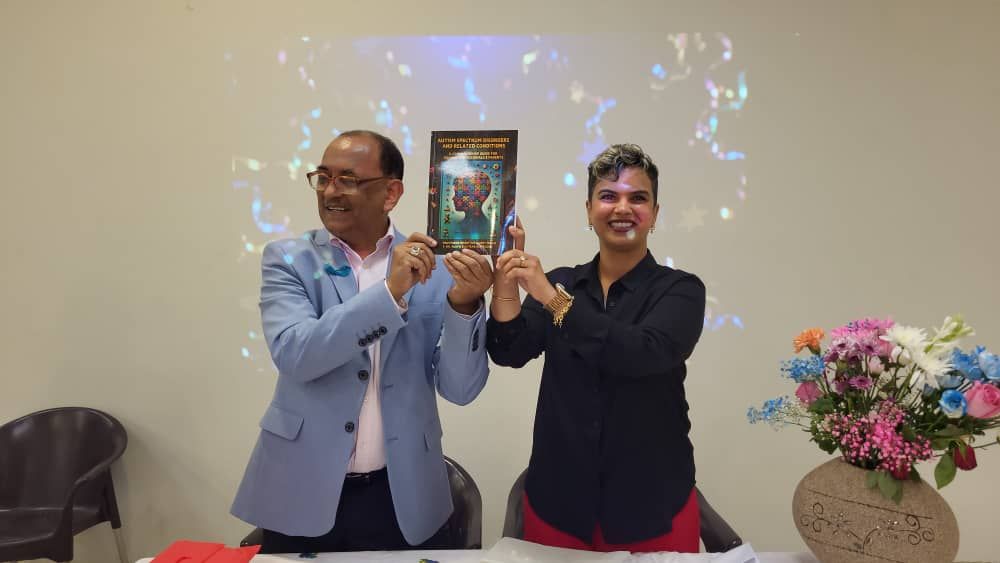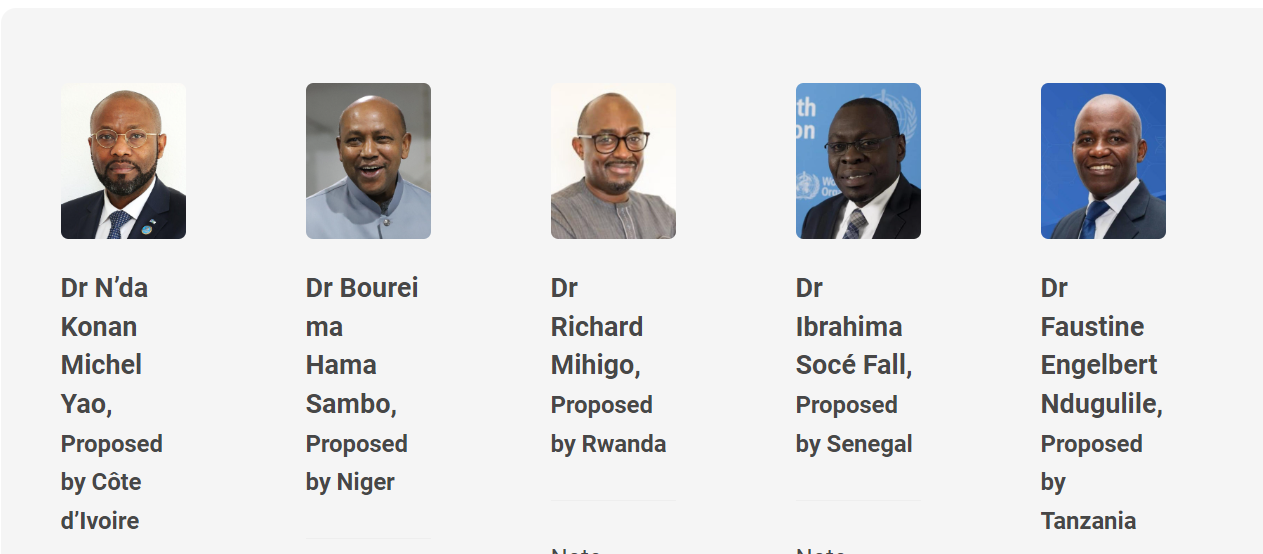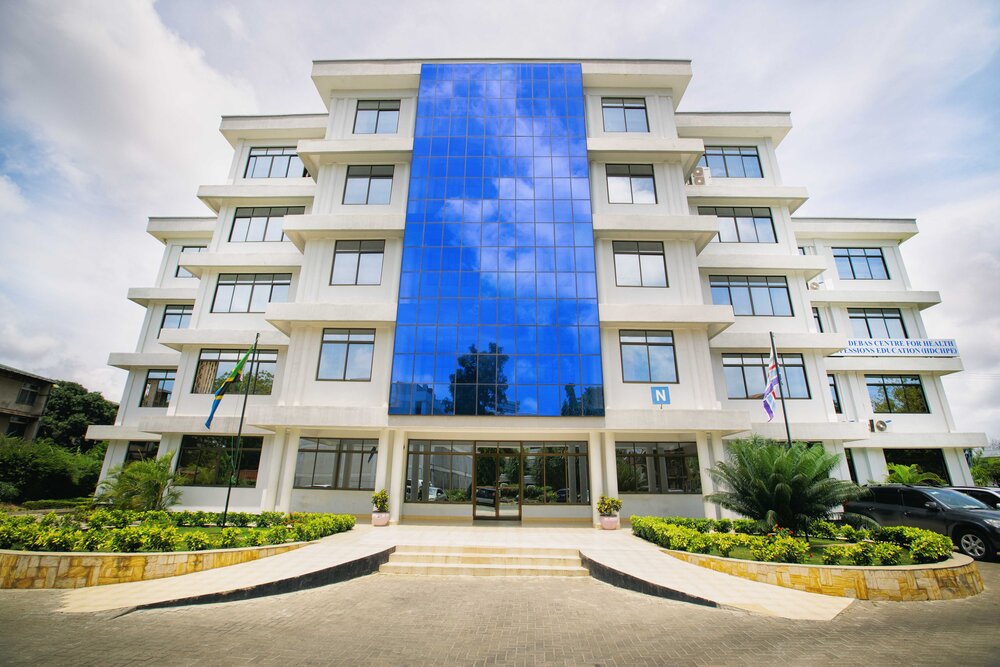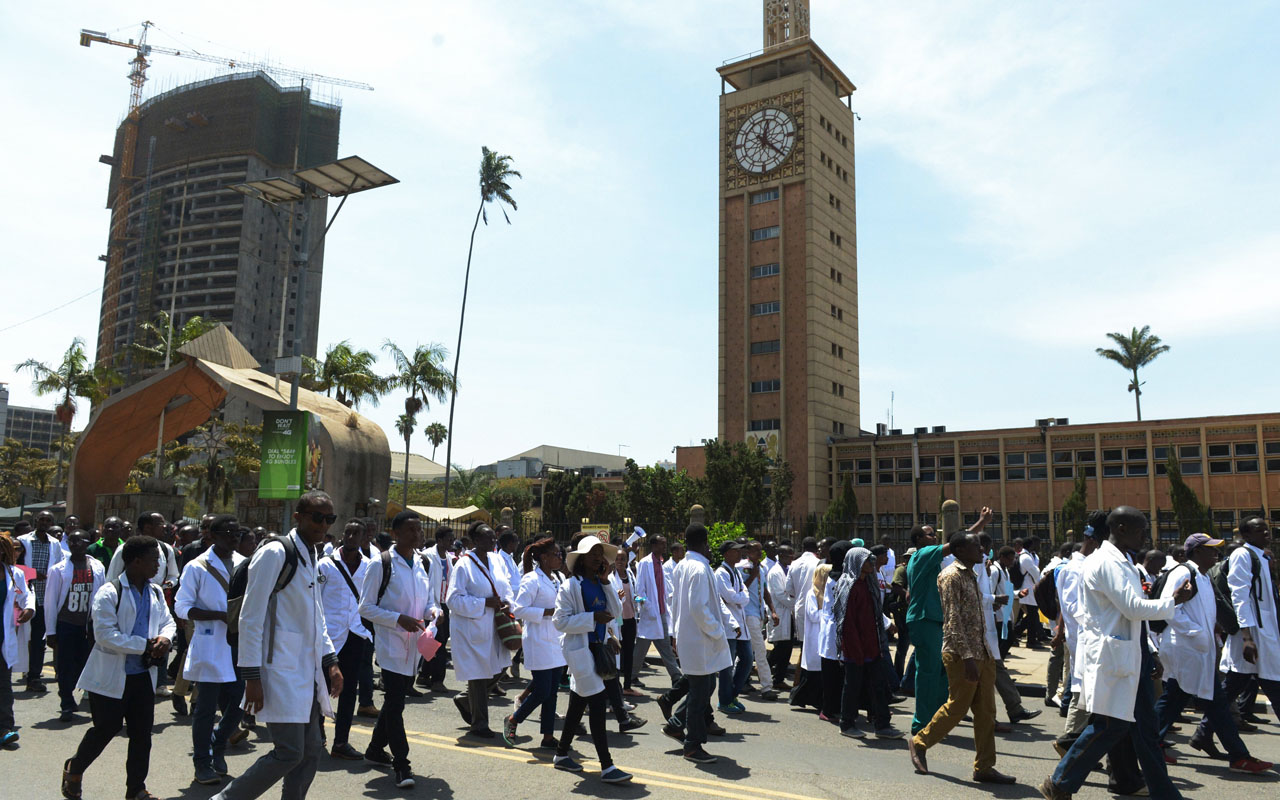A leading Tanzanian pediatrician has issued a stark warning against the use of stem cell therapies for autism, saying they are ineffective and potentially harmful. Professor Karim Manji, a renowned medical professional from the Muhimbili University of Health and Allied Sciences (MUHAS), delivered this message during the launch of his book, “autism spectrum disorders and Related Conditions,” co-authored with Dr. Aleya Zulfikar Remtulla.
In stem cell therapy, special cells which can auto-renew or can become different from other cells, are injected into a patient to repair or replace damaged cells as a way of treating various conditions. Supporters of this kind of therapy for autism believe that it can reduce autism characteristics and improve behaviour, anxiety, social skills, communication, speech and ability to focus.
“Stem cell therapies are still at the experimental stage…there is no evidence to support their use in treating autism. Parents should be wary of any claims to the contrary, as these therapies can be very costly and may offer no benefit to their children.”
Professor Karim Manji- Muhimbili University of Health and Allied Sciences (MUHAS)
Autism – also referred to as autism spectrum disorder (ASD) ̶ constitutes a diverse group of conditions related to development of the brain and affects millions of children worldwide, with the World Health Organization (WHO) estimating that approximately 1 in 100 children have autism globally.
In Tanzania, Prof. Manji says he has observed a concerning rise in autism cases. “I used to see 2-3 cases of autism cases per year [at my clinic] but now I see 2-3 per week, and this number keeps growing year after year.”
This increase calls for an urgent need for accurate diagnosis, effective management strategies, and reliable information for both parents and healthcare providers. The increase in the incidence is not only due to increased awareness , but rather a real increase.
The 10-chapter book, co-authored with Dr. Aleya Zulfikar Remtulla, a pediatrician dedicated to helping children with developmental challenges, aims to address this critical need. As stated in the preface by Prof. Enica Massawe, Principal of the Campus College of Medicine at MUHAS, the book’s primary goal is to “empower professionals and parents alike with the tools needed to identify, understand, and effectively manage ASD.”
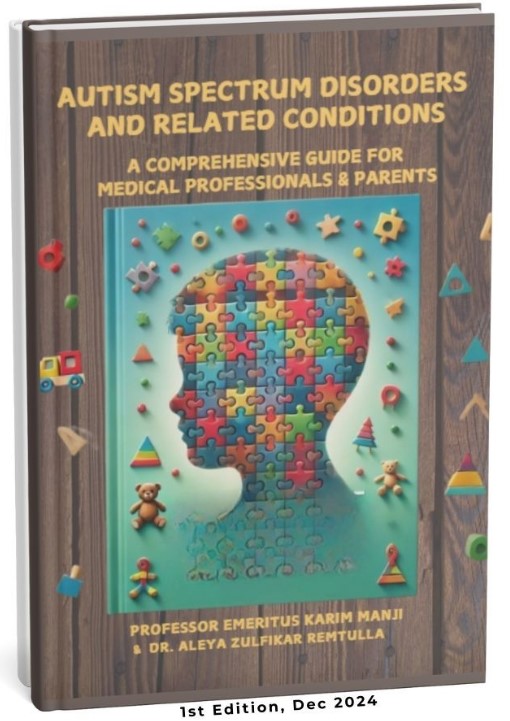
Prof. Manji, while acknowledging the unique characteristics of autistic individuals (“Children with autism are unique and special. At times they have unusual diverse behaviours”, highlighting the significant challenges faced by both society and some medical professionals in understanding and addressing autism.
He emphasized the importance of accurate diagnosis. “There is a problem. How do you diagnose autism in children?” He expressed cautious optimism regarding ongoing scientific research, acknowledging that a definitive therapy for autism may eventually be developed, although significant progress will likely take time.
However, Prof. Manji discouraged the promotion of stem cell therapies for autism.
In April last year, the UK’s National Autistic Society said there was no “cure” for autism following concerns surrounding “experimental procedures” on autistic children in the UK. The BBC reported that Met Police had “launched an investigation over concerns about stem-cell injections being offered to children as a cure for autism.
Professor Manji’s concerns stem from a significant rise in autism diagnoses in Tanzania, coupled with the alarming observation of desperate parents falling prey to unscrupulous dealers promoting unproven stem cell therapies.
“Stem cell therapy is still at experimental stage, and it’s not as easy as people think,” and warning against the potential for financial exploitation. “Don’t waste your money, tens of thousands of dollars on stem cell therapy which does not show any value.”
Beyond the concerns regarding stem cell therapies, Prof. Manji highlighted the broader challenges faced by individuals with autism and their families.
He stressed on the critical need for comprehensive and accessible services. And also counseling sessions as well as having parent support groups.
“There is a serious lack of comprehensive services for the same. The available services are meagre. And in the instances where it is available, it is very expensive, because the centres have few human resources and the demand is so high.” He also expressed concern about the exploitation of vulnerable families, saying, “I am saddened at times that some people use it as an opportunity to make extra money.”
In May 2014, the Sixty-seventh World Health Assembly adopted a resolution entitled “Comprehensive and coordinated efforts for the management of autism spectrum disorders,” supported by over 60 countries. This resolution urges WHO to collaborate with Member States and partner agencies to strengthen national capacities to address ASD and other developmental disabilities.
Prof. Manji commended ongoing efforts by the Tanzanian Ministries of Health and Education and Vocational Training to promote inclusivity for children with autism, emphasizing the importance of mainstream education rather than segregating children with autism into specialized schools. And also the revamping of the curriculum to make them capable of hands-on activities and entrepreneurship.
“There is no need to have a special school for children with autism, rather mainstream schools should cater for these children and capacity build their teachers to provide inclusive education so as to reduce stigma and costs.
“These wonderful children have the capabilities to excel and some have become renowned scientists as their development quotients may exceed the normal,’’ he noted.





